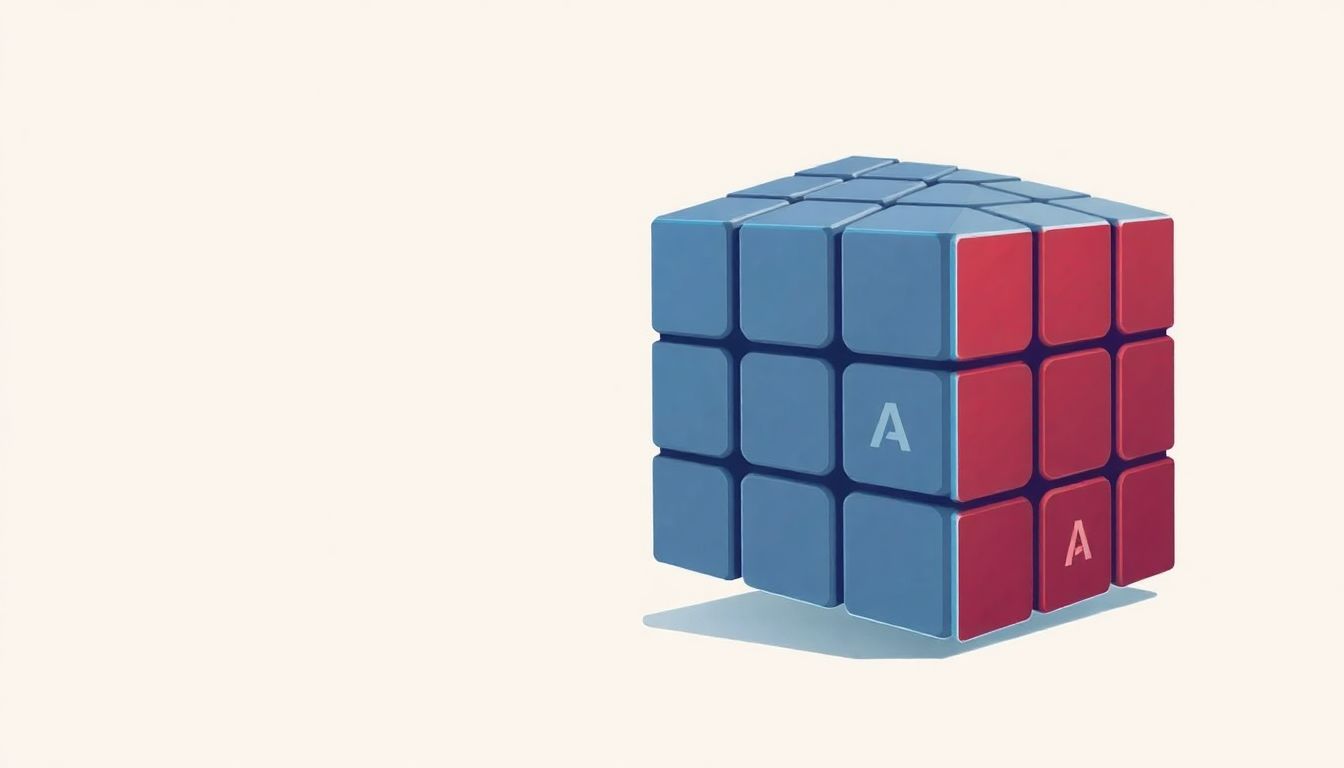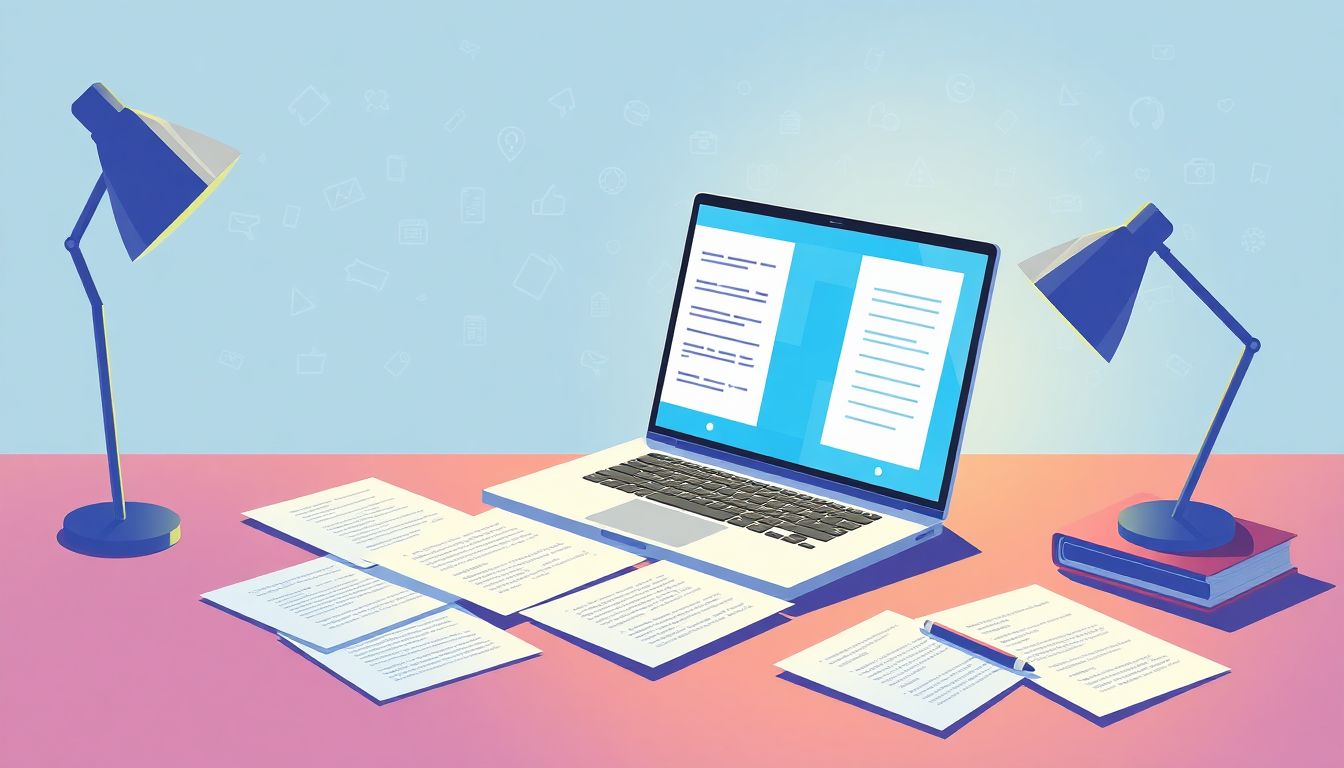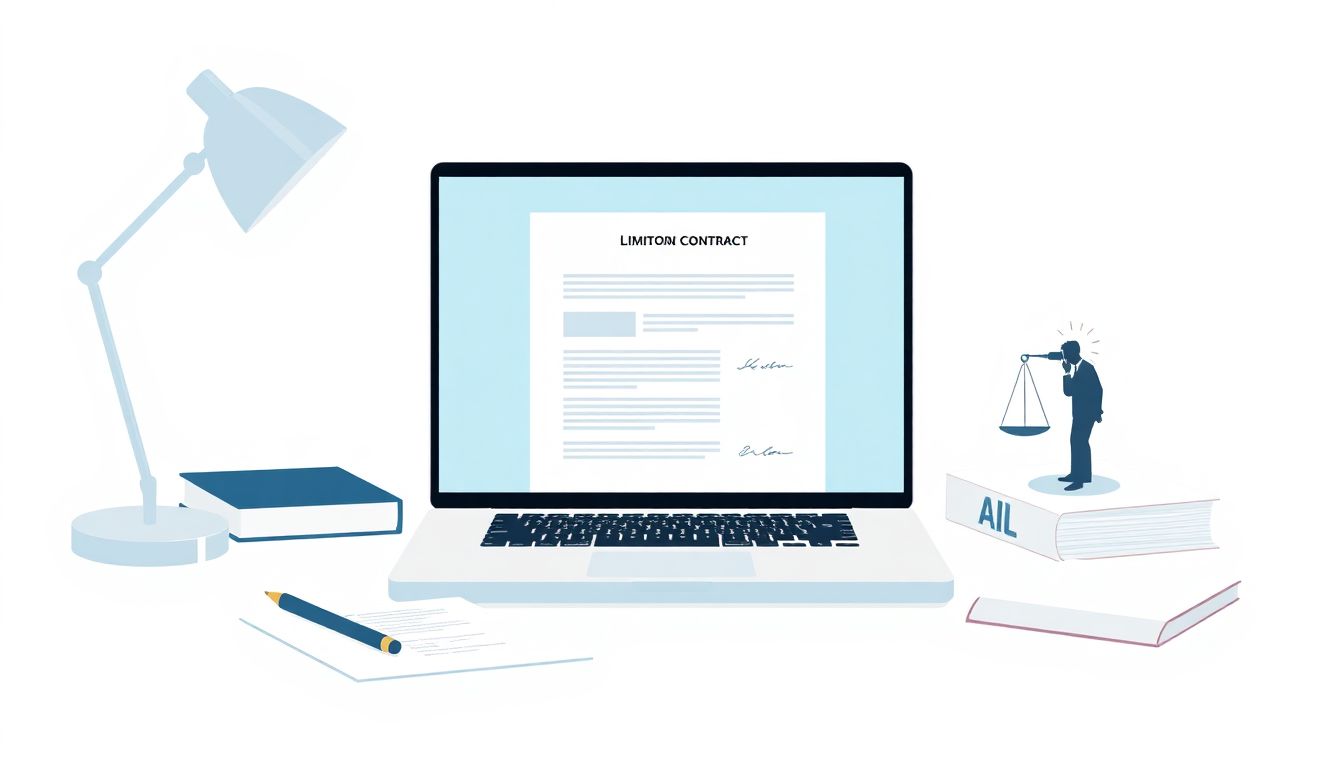Navigating contract negotiations can feel like trying to solve a Rubik’s cube—frustrating and confusing. If you’re dealing with complex terms, unclear language, or simply a lack of confidence in your negotiation skills, you’re definitely not alone. Many people struggle to get the best deal without sacrificing important details.
But what if I told you that ChatGPT could be your handy sidekick in this journey? By sticking around, you’ll discover how this AI tool can streamline negotiations, provide instant insights, and even help draft those tricky contracts. Sounds promising, right?
We’ll explore how ChatGPT enhances contract talks—from drafting templates to offering real-time feedback—and share tips that can make your negotiations smoother. Let’s dive in!
Key Takeaways
- ChatGPT can simplify contract negotiations by offering real-time insights and suggestions, making the process faster and more efficient.
- The AI tool efficiently understands and generates complex legal language, allowing for quick drafting and reviewing of contracts.
- You can create customizable contract templates for various needs, saving time and ensuring all essential clauses are included.
- Using ChatGPT during negotiations can provide instant feedback, enabling you to adjust your strategies on the spot.
- Tailor your prompts clearly; specificity helps generate the most relevant and useful contract information.
- ChatGPT can help resolve common contract issues like ambiguities and compliance concerns by providing targeted assistance.
- Case studies show that using ChatGPT can lead to successful agreements and stronger relationships between negotiating parties.
- Integrate best practices like team training and regular feedback to maximize the effectiveness of ChatGPT in negotiations.

How ChatGPT Can Improve Your Contract Negotiations
ChatGPT can significantly enhance your contract negotiations by providing AI-powered insights that streamline discussions and improve outcomes.
Imagine having an assistant that can analyze your negotiation strategies and suggest improvements in real-time.
By leveraging the capabilities of ChatGPT, you can quickly identify key issues, generate alternative solutions, and enhance communication between parties.
This not only saves time but also boosts confidence during negotiations, leading you to better agreements.
Key Features of ChatGPT for Contract Negotiations
ChatGPT comes with several key features that are particularly beneficial for contract negotiations.
One of its standout capabilities is its natural language processing, allowing it to understand and generate complex legal language efficiently.
This means you can ask ChatGPT to draft or review contract clauses with the assurance that it understands the nuances.
Additionally, its automated drafting features can help you generate a draft contract in minutes, instead of hours.
Real-time analysis and feedback mean you can make adjustments on the fly, ensuring that both sides feel heard and represented.
Using ChatGPT to Draft Effective Contract Templates
Drafting contract templates can be a tedious process, but ChatGPT makes it far more manageable.
By providing customizable templates, it allows you to modify legal language according to your specific needs.
Here are some prompts you can use for creating effective contract templates:
- Create a standard contract template for freelance services including payment terms and deliverables.
- Draft a non-disclosure agreement (NDA) template for protecting confidential information between two parties.
- Generate a lease agreement template for rental properties that includes specific clauses for maintenance and repairs.
- Outline a partnership agreement that includes profit sharing and roles of each partner.
These templates can save you a lot of time and ensure that you’re covering all necessary bases.
Real-time Feedback from ChatGPT During Negotiations
One of the most valuable aspects of using ChatGPT during negotiations is its ability to provide instant feedback.
This interactivity allows you to adjust your strategies dynamically based on immediate reactions from your negotiating counterpart.
You can use ChatGPT to analyze the other party’s responses to your initial proposals and receive suggestions for alternative approaches.
Try commands like:
- What are some counterarguments I might face regarding my proposal for higher payment terms?
- Provide me with three ways to justify my request for an extended deadline in the contract.
- How should I respond if the other party raises concerns about liability in the agreement?
- Generate a list of possible concessions I could make without compromising key terms.
This real-time assistance transforms the negotiation landscape, making it more efficient and effective for all involved.

Tips for Customizing Your ChatGPT Prompts for Contracts
Customizing prompts is essential for getting the most from ChatGPT in contract negotiations.
You want your queries to be clear, concise, and targeted to elicit valuable information.
Here are some tips to help you craft effective prompts:
- Be specific about what you need. Instead of asking, “What should I include in a contract?” try “List key clauses for a service-level agreement for IT support.”
- Use context in your prompts. Instead of saying, “Give me a contract,” say, “Draft a contract for freelance graphic design services, including deadlines and payment terms.”
- Incorporate any unique elements that are important for your situation. For example, “Create a partnership agreement for a tech startup with equity sharing based on performance.”
- Request examples or templates to guide your drafting. Try, “Provide a sample NDA that includes clauses on intellectual property and confidentiality.”
These strategies can help you refine your prompts, making it easier to generate detailed and relevant responses.
Common Contract Issues and How ChatGPT Can Help Resolve Them
Contracts often come with their share of issues like ambiguous terms and conflicting interests.
ChatGPT can assist in identifying and resolving these issues effectively.
Here are a few common contract problems and ways ChatGPT can help:
- Ambiguities: If a clause is unclear, ask, “Explain this clause in simpler terms and identify potential ambiguities.”
- Dispute resolution: For conflicts, you might use, “Suggest ways to address a disagreement over service deliverables in a client contract.”
- Compliance: To check for legal adherence, prompt with, “Review this contract and highlight any potential compliance issues with local laws.”
- Risk assessment: For evaluating risks, ask, “Identify possible risks associated with a contract for a joint venture in manufacturing.”
By addressing these common issues with tailored prompts, you can enhance contract clarity and compliance.
Case Studies: Successful Contract Negotiations with ChatGPT
Case studies provide real-world insights into how ChatGPT can enhance contract negotiations.
Let’s look at a couple of examples where using ChatGPT led to successful outcomes:
In one case, a small business used ChatGPT to draft a partnership agreement.
By customizing prompts for clarity, they managed to outline responsibilities and profit-sharing effectively.
As a result, both parties felt secure and understood their obligations, leading to a successful collaboration.
Another scenario involved a law firm that integrated ChatGPT into their contract review process.
They utilized it to generate alternate language for complex clauses, which streamlined discussions between clients and stakeholders.
This led to quicker approvals and a stronger relationship with their clients, showcasing the efficiency ChatGPT brings to negotiations.
These examples highlight the tangible benefits of incorporating AI in contract negotiations, providing both time savings and enhanced clarity.
Best Practices for Integrating ChatGPT into Your Negotiation Process
To get the most from ChatGPT in your negotiation process, follow some best practices.
Start by identifying specific areas where AI can add value, such as drafting or review.
Ensure your team understands how to leverage ChatGPT effectively. Consider training sessions to familiarize everyone with AI capabilities.
Incorporate regular check-ins to discuss feedback and potential improvements in how ChatGPT is used.
Encourage collaboration where team members can share insights and successful strategies using ChatGPT.
Finally, stay updated on new features and updates from ChatGPT to keep enhancing your negotiation techniques.
By adopting these practices, you can create a more efficient and responsive negotiation environment.

Limitations of ChatGPT in Contract Negotiations
While ChatGPT is a powerful tool, it’s essential to recognize its limitations in contract negotiations.
First, ChatGPT may struggle with complex legal nuances that require human intuition and expertise.
For instance, it might not fully grasp the implications of certain clauses or the precedent set by previous agreements.
Second, the AI relies heavily on the input it receives, so poorly phrased prompts can lead to less useful suggestions.
Additionally, it can’t provide legal advice, making it crucial to consult a qualified attorney for final decisions.
Here are some prompts to help you understand where ChatGPT might fall short:
- Identify potential misunderstandings in this contract clause and suggest ways to clarify it.
- What ethical concerns could arise from using AI in contract negotiations?
- List scenarios where human intervention is necessary during contract reviews.
- Explain limitations in using AI for advanced legal arguments or nuances in specific jurisdictions.
Understanding these limitations allows negotiators to use ChatGPT effectively while compensating for its weaknesses.
Future Trends: AI in Contract Negotiation Strategies
The future of contract negotiations is poised for transformation with ongoing advancements in AI technologies.
One trend is the increasing integration of predictive analytics, where AI can analyze past negotiation data to suggest optimal strategies.
This means ChatGPT could evolve to not only provide real-time feedback but also predict negotiation outcomes based on historical context.
Another emerging trend is the development of specialized AI tools that cater to niche legal sectors, enhancing efficiency in those areas.
Stay ahead by using prompts like:
- What are the latest advancements in AI tools for contract negotiations?
- How might predictive analytics change the way contracts are negotiated?
- Research and summarize the most significant upcoming AI features in legal negotiations.
- What skills will negotiators need in an AI-driven contract environment?
By keeping an eye on these trends, you’ll be better prepared to adapt your strategies as technology continues to evolve.
FAQs
ChatGPT can help create customizable contract templates by providing language suggestions and standard clauses based on user inputs, ensuring accuracy and reducing the time required for drafting while maintaining legal language compliance.
Some limitations include potential inaccuracies in legal jargon, lack of contextual awareness, and dependency on user-provided prompts. ChatGPT cannot replace legal advice or fully understand complex legal nuances during negotiations.
To customize prompts effectively, be specific about the contract type, desired outcomes, and issues you’re facing. Providing context and details improves the quality of responses from ChatGPT, enabling tailored negotiation strategies.
Best practices include using ChatGPT for initial drafts, soliciting real-time feedback, and reviewing outputs critically. Combine AI assistance with human expertise to ensure compliance and mitigate risks during the negotiation process.
